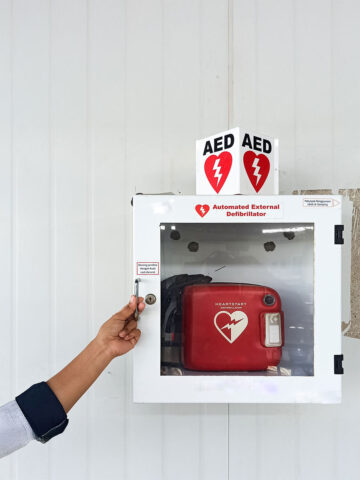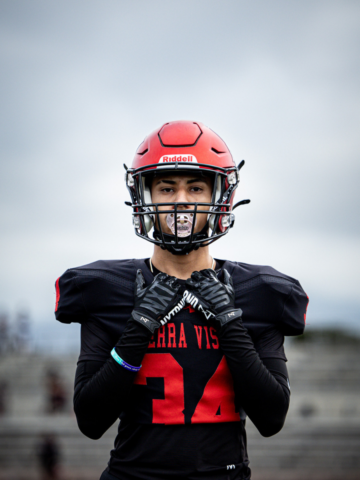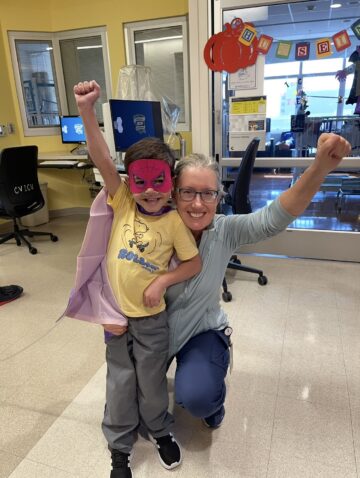Liam, age 20 months and Anaya, age five months, are cousins who both happen to be CHOC heart patients.
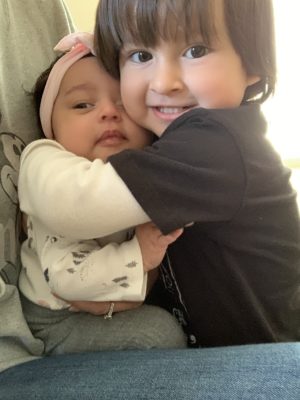
Liam was diagnosed with a heart defect in utero and needed pediatric heart surgery when he was a few months old. Shortly after Liam’s surgery, his younger cousin Anaya was also diagnosed with a heart defect before she was born – so far, she has not needed surgery but continues to be closely monitored by CHOC experts.
Learning that your child has a heart condition and might need surgery can be scary and stressful for any parent or caregiver. However, both Liam’s mom and Anaya’s mom – sisters Jasmine and Jennifer – were already familiar with CHOC’s Heart Institute, having been patients themselves.
Jasmine, the older sister and Liam’s mom, was diagnosed with a ventricular septal defect (VSD) when she was a baby. She wasn’t eating, was losing weight and was crying more than normal – and eventually, she was referred to CHOC, where her VSD was diagnosed. A VSD is a birth defect where there is a hole in the wall that separates the two lower pumping chambers of the heart. Doctors at CHOC monitored Jasmine’s VSD for a while to see if it would close on its own, but eventually it was clear that Jasmine needed heart surgery, which she had at CHOC at age 4.
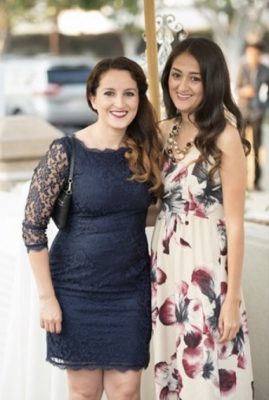
When Jennifer, the younger sister and Anaya’s mom, was born, she exhibited the same symptoms that Jasmine had shown. Doctors at CHOC diagnosed Jennifer with an atrioventricular septal defect – where there is a hole both between the heart’s upper chambers and the lower chambers with a single valve inside, instead of having two. She had two heart surgeries, the first at a few months old and the second at age four.
Both sisters had periodic checkups with CHOC cardiologists after surgery, and their appointments became less frequent as they grew older and stayed healthy. Jennifer still sees Dr. Michael Recto, who carefully follows adult and pediatric patients with congenital heart disease.
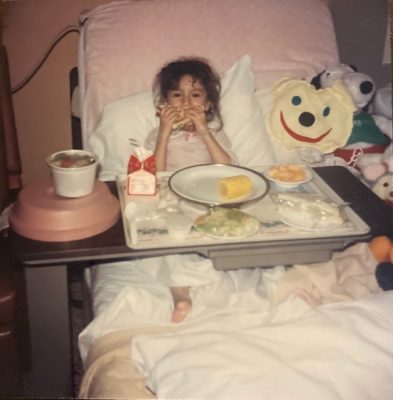
“Cardiac surgery for patients with severe congenital heart disease is not a cure. Lifelong follow-up is required with a congenital heart disease specialist,” explains Ryan Hansen, director of CHOC’s Heart Institute.
When Jasmine and Jennifer grew up and thought about starting their own families, having heart conditions and a history of heart surgery posed special considerations. To be safe, each mother’s cardiologist asked to see her more frequently during pregnancy for additional monitoring given the known increased risks of heart complications, pre-term delivery, cesarean section and bleeding after delivery.
Jasmine and Liam
When Jasmine was 20 weeks pregnant with Liam, a routine anatomy scan showed that the baby had a heart condition. Jasmine was referred to Dr. Nita Doshi, a pediatric cardiologist at CHOC who specializes in fetal cardiology. A definitive diagnosis wouldn’t be possible until Liam was born, but throughout the pregnancy Dr. Doshi performed fetal echocardiograms, an ultrasound test to evaluate Liam’s heart.
“I was scared to learn that my baby might need heart surgery,” Jasmine says. “We weren’t sure if Liam would need emergency surgery when he was born, but Dr. Doshi talked to my OB/GYN and helped me make a plan.”
At the delivery hospital, a neonatal intensive care unit (NICU) team was in place for Liam’s delivery in case he needed urgent care. He was healthy, but he stayed in the NICU for 11 days for extra monitoring.
Once Liam went home, he began seeing Dr. Doshi for check-ups on his heart.
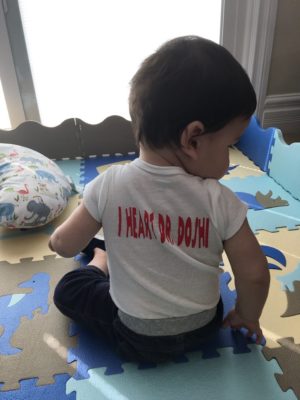
“Having a baby with a heart defect is scary, but once I saw Dr. Doshi, I felt calm,” Jasmine says. “Dr. Doshi explains complicated things in a way that make sense, even if you don’t have a medical background. She even draws hearts and diagrams. I just knew that at the end, no matter what happened, it would be OK.”
Over the next few months, it was clear that the hole in Liam’s heart wasn’t closing on its own. As Liam approached seven months old, Dr. Doshi told Jasmine it was time to talk about surgery.
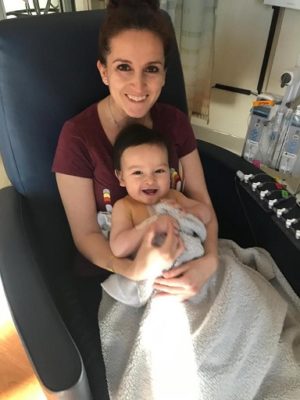
“Finding out my baby needed heart surgery brought me back to my own experience,” Jasmine said. “I was old enough when I had surgery to have memories, and I didn’t want my baby to experience that or be scared. But I knew that if he had surgery as a baby, not only was it in the best interest of his health, but he wouldn’t be old enough to remember being hospitalized. I also knew that technology had progressed a lot since my own surgery, so I knew my son would be in good hands at CHOC.”
Liam underwent surgery with Dr. Richard Gates, a CHOC pediatric cardiothoracic surgeon and co-director of CHOC’s Heart Institute. After a successful surgery to close the hole in his heart, Liam spent three days in the hospital to recover. The first time Jasmine saw her son in the cardiovascular intensive care unit (CVICU) after surgery was emotional.
“It’s hard to see your child connected to all these tubes and machines,” Jasmine recalls. “But I’m grateful that a CVICU nurse pulled me aside before I went in Liam’s room and told me what to expect so I could prepare myself. It could have been a shocking image, but she prepared me for it.”
Jasmine also felt grateful for the education she received from Dr. Gates.
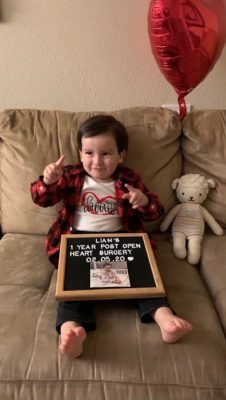
“Talking to Dr. Gates before and after the surgery made me more comfortable,” Jasmine recalls. “Dr. Gates explained everything in a way that was easy to understand.”
Despite a network of support, and knowing her child was in good hands, the process was hard on Jasmine as a mother.
“I didn’t think I had the strength to have my child go through open heart surgery,” Jasmine says. “But Liam made me a tough mom. He made me stronger.”
Despite undergoing open heart surgery at seven months, Liam never regressed on his milestones. He loves to climb, is very independent and is a social butterfly.
“Liam is so active. If you didn’t know he had open heart surgery, or happened to see the scar on his chest, you would have no idea what he had been through,” Jasmine says.
Jennifer and Anaya
For Jennifer, knowing she had an older sister who had gone through surgery made the experience easier for her. Jennifer had surgery at age 4 to repair her AVSD and spent a week in the hospital recovering. At the time, their dad was working full time and their mom was taking care of three kids, so Jennifer spent quality time with her CHOC nurses while she was recovering.
“My nurses took good care of me. They gave me wagon rides around the unit, and I felt popular because everyone waved at me,” Jennifer recalls.
When Jennifer grew up and was ready to start her own family, she had more frequent check-ups during pregnancy given her heart condition. A routine anatomy scan of her baby raised concern for a VSD.
“In the back of my mind, I knew it was a possibility that my daughter would have a heart condition like other people in our family, but I thought, ‘Oh, there’s no way. The chances are so small,’” Jennifer recalls. “At first, hearing my daughter might have VSD, I felt like I was floating; the news didn’t sink in. Then I was in denial.”
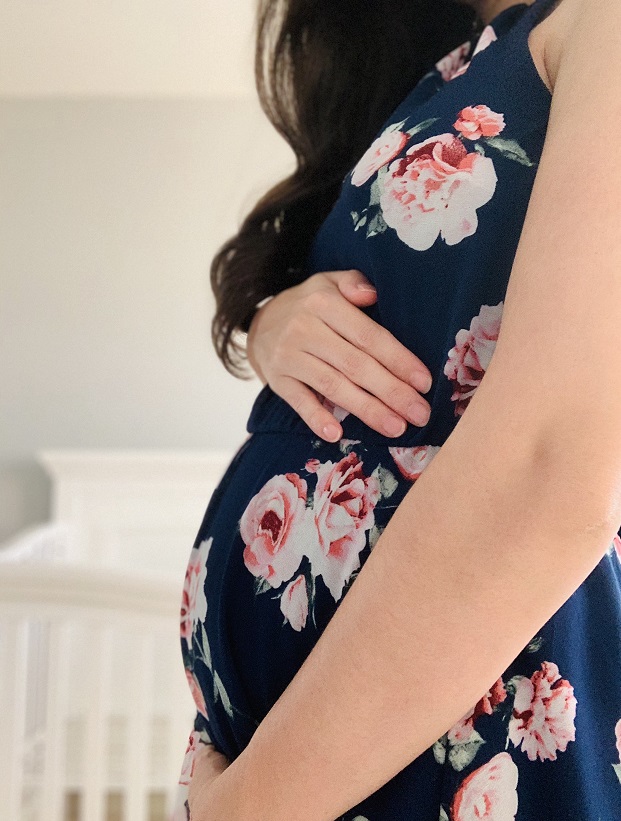
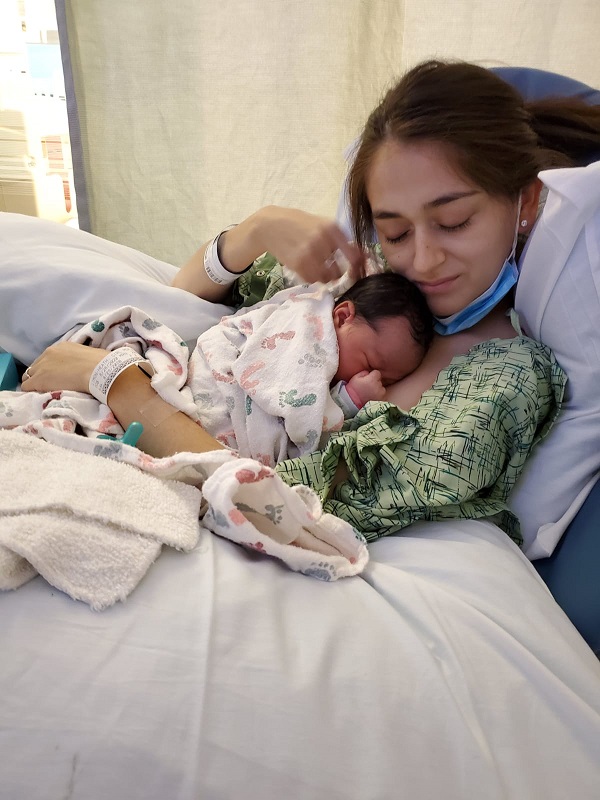
Jennifer was referred to Dr. Doshi – a familiar face, since Dr. Doshi had been Jennifer’s own cardiologist when she was a little girl.
“It is one of the greatest honors of my career to care for Jasmine, Jennifer, Liam and Anaya,” Dr. Doshi says. “As a physician, our truest joy of practice stems from the opportunity to become a part of their family through the care we provide.”
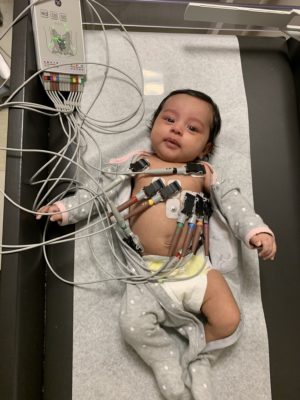
Ongoing fetal echocardiograms throughout Jennifer’s pregnancy showed the VSD in Anaya’s heart was closing on its own. When Anaya was born, she spent one day in the NICU for monitoring. Anaya has had ongoing check-ups with Dr. Doshi to monitor her atrial septal defect, a hole between the upper chambers of the heart. Doctors also monitor her bicuspid aortic valve, meaning her aortic valve only has two cusps instead of three. There is a chance that Anaya will need surgery in the future, but also a chance that the hole will become smaller over time.
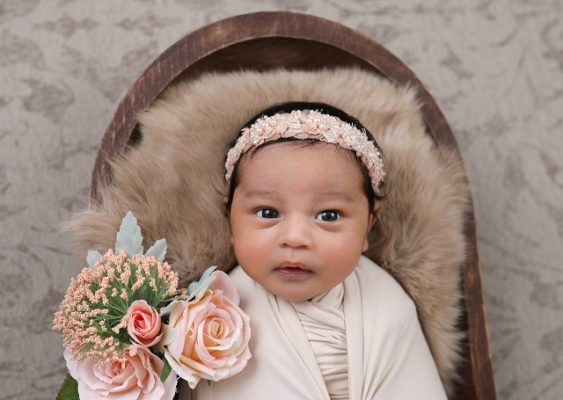
Advice to other moms
As their little ones grow up, Jasmine and Jennifer are eager to not only watch them develop, but to impart lessons they’ve learned through their own experiences as heart patients.
“I never saw myself as not being able to do this or that because of my heart condition; I always saw myself as normal,” Jasmine says. “I want that for Liam, and I know my sister wants that for my niece.”
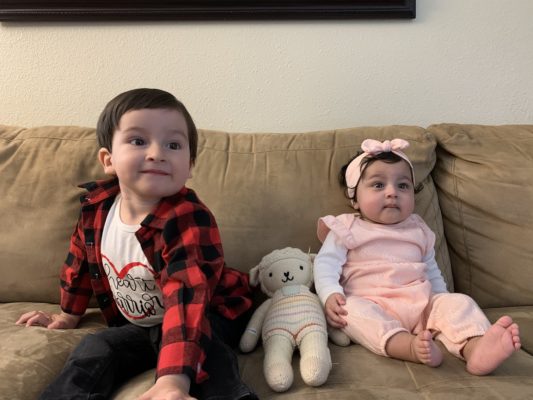
The sisters offer these additional reminders to other parents of babies with heart defects:
- Get informed and ask questions – as many as you need – until you feel comfortable.
- It’s scary to know your baby will need surgery but remember it will be beneficial for them in the long run.
- Having a baby go through surgery is often a harder experience on you as a parent, than it is on your child.
- It’s very likely that your child’s heart condition will not limit their interests and activities as they grow up. (Jasmine and Jennifer both played competitive sports growing up.)
Get more expert health advice delivered to your inbox monthly by subscribing to the KidsHealth newsletter here.
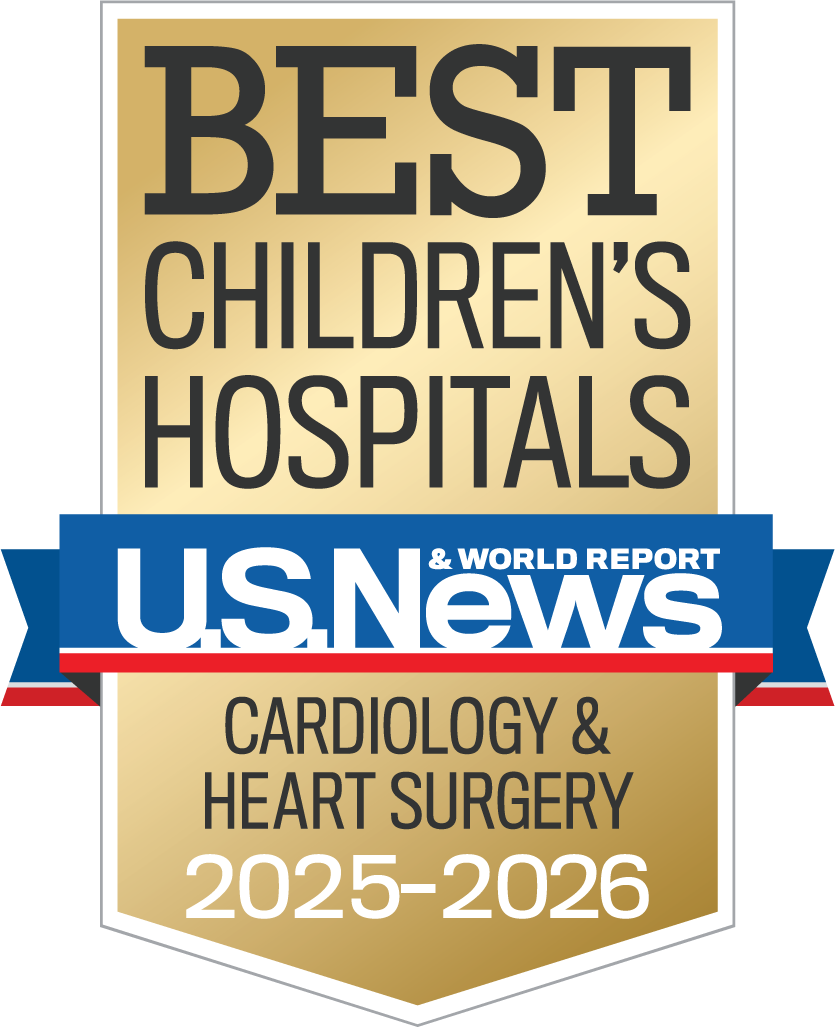
Learn more about CHOC’s Heart Institute
CHOC and UCLA Health together have been ranked among the top children’s hospitals in the nation for Cardiology & Heart Surgery by U.S. News & World Report.

